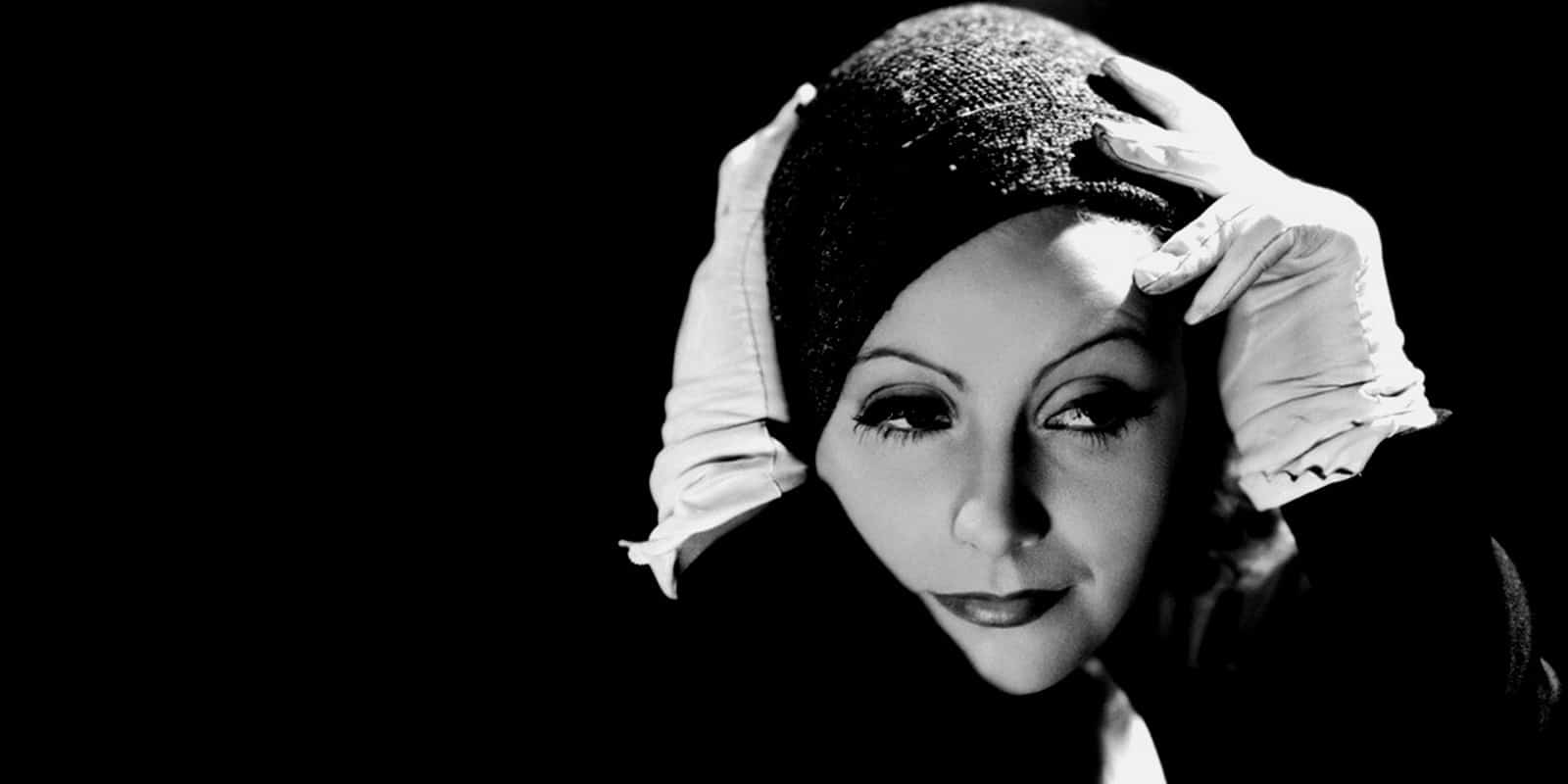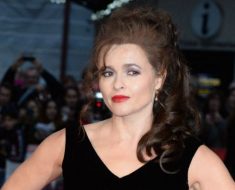
Greta Lovisa Gustafsson net worth is $50 Million. Also know about Greta Lovisa Gustafsson bio, salary, height, age weight, relationship and more …
Greta Lovisa Gustafsson Wiki Biography
Greta Garbo was born in Södermalm, Stockholm, Sweden on 18 September 1905, of Swedish ancestry, and was a noted actress, probably best known as “Anna Karenina”, but overall one of the greatest female stars of Classic Hollywood Cinema. She passed away in 1990.
A respected actress, how rich was Greta Garbo? Sources estimate that Greta’s net worth would be over $50 million, accumulated during her career in the entertainment industry which began in the 1920s. Her assets included a New York apartment at the Campanile, and an expensive art collection including works from artists such as Renoir and Bonnard.
Greta Garbo was born to parents Anna Lovisa Karlsson, a worker at a jam factory, and Karl Alfred Gustafsson, a laborer. Their family was very poor, living in an apartment in the slums. Even as a child, Greta became interested in amateur theatre, participating at the Mosebacke open theatre, and dreaming of becoming an actress. She left school at age 13 and, typical of slum girls during that time, she did not attend high school but started working at that age – Greta’s first job was a soap-lather girl in a barber shop.
Later on, she worked in a department store’s hat section, and since she was pretty and showed much promise, she got a job modeling hats for the store’s catalog, which opened up more opportunities for Greta as a fashion and commercial model for women’s clothes. However, Greta’s first brush with the film industry came in 1922, when she was discovered by Director Erik Petschler, and given a part in his comedy, “Peter the Tramp”. She took two years of acting school and subsequently starred in two minor films.
Her film caught the attention of Louis Mayer from MGM Studios, who was absolutely enamored with Greta, saying “I can make a star out of her.” Greta was taken aboard a ship to New York at 20 years old, although she didn’t even know how to speak a word of English! Greta was subsequently crafted by MGM into the top-billing actress during the 20s, starring in “Torrent”, “The Temptress”, “Flesh and the Devil”, “A Woman of Affairs”, and many others. Her inability to speak English did not affect her career, because it was the silent film era at that time. Her glamorous presence, her acting skills, and her on-screen chemistry with her male lead actors (especially John Gilbert) made her into a star.
The ‘30’s transition to sound film was still met with continued success. “Anna Christie”, “Romance”, “Inspiration”, and especially “Mata Hari” and “Grand Hotel”, her two most famous roles, were all hits for Greta. Her salary was pegged at $300,000 per film at that time in the 1930s, and this was where Greta established a major part of her net worth and assets. However, what became her last role, the romantic comedy “Two-Faced Woman”, was deemed a critical failure, and she lost all passion for acting after that flop, and went into early retirement. After that film, the Second World War erupted and although she signed up for more projects, none materialized.
Although her career as a film actress was her most lucrative, Greta’s net worth can also be credited to many other sources. She began collecting art in the 1940s, by artists such as Renoir, Kandinsky, Bonnard, and Jawlensky. At that time, she paid a small sum for those paintings, but when she died her art collection was appraised to be worth millions of dollars.
In her personal life, Greta never married, had no children and lived alone even during her senior years; her most famous and publicly known romance was with her co-star John Gilbert during the 1920’s, but she had many rumoured relationships at different stages throughout her life. In general, she made no public appearances and was very secretive about her private life. Greta died at 84 years old in April 1990, in New York City, and left a sizeable investment of stocks and bonds worth around $50 million to her niece, Gray Reisfield.
IMDB Wikipedia $50 million 1905 1905-9-18 1990 1990-04-15 5′ 7½” (1.71 m) Actress Alva Garbo Anna Lovisa April 15 Camille (1936) Dramatens elevskola Erik Petschler Grand Hotel (1932) Greta Garbo Net Worth Greta Lovisa Gustafsson Karl Alfred Gustafsson New York New York City Ninotchka (1939) Queen Christina (1933) September 18 Soundtrack Stockholm Stockholms län Sven Garbo Sweden United States Virgo
Greta Lovisa Gustafsson Quick Info
| Full Name | Greta Garbo |
| Net Worth | $50 Million |
| Date Of Birth | September 18, 1905 |
| Died | April 15, 1990, New York City, New York, United States |
| Place Of Birth | Stockholm, Stockholms län, Sweden |
| Height | 5′ 7½” (1.71 m) |
| Profession | Actress, Soundtrack |
| Education | Dramatens elevskola |
| Nationality | American |
| Parents | Karl Alfred Gustafsson, Anna Lovisa |
| Siblings | Alva Garbo, Sven Garbo |
| IMDB | http://www.imdb.com/name/nm0001256/ |
| Awards | Academy Honorary Award, Litteris et Artibus |
| Nominations | Academy Award for Best Actress |
| Movies | Ninotchka, Queen Christina, Camille, Grand Hotel, Anna Christie, Flesh and the Devil, Mata Hari, Anna Karenina, The Temptress, Two-Faced Woman, A Woman of Affairs |
Greta Lovisa Gustafsson Quotes
- [in 1932, on director Mauritz Stiller, the nature of her relationship with him and the part it played in cultivating her well-publicized preference for privacy over publicity] Stiller’s death was a great blow to me. For so long I had been his satellite. All Europe at that time regarded Stiller as the most significant figure in the film world. Directors hurried to the projecting rooms where his prints were shown. They took with them their secretaries and, in the dim silence, they dictated breathless comments on the wide sweep of his magnificent technique. Stiller had found me, an obscure artist in Sweden, and brought me to America. I worshiped him. There are some, of course, who say it was a love story. It was more. It was utter devotion which only the very young can know–the adoration of a student for her teacher, of a timid girl for a mastermind. In his studio, Stiller taught me how to do everything: how to eat; how to turn my head; how to express love–and hate. Off the screen I studied his every whim, wish and demand. I lived my life according to the plans he laid down. He told what to say and what to do. When Stiller died I found myself like a ship without a rudder. I was bewildered–lost–and very lonely. I resolutely refused to talk to reporters because I didn’t know what to say. By degrees I dropped out of the social whirl of Hollywood. I retired into my shell. I built a wall of repression around my real self, and I lived–and still live–behind it.
- [on another factor contributing to her decision to shun publicity (1932)] I am still a little nervous, a little self-conscious about my English. I cannot express myself well at parties. I speak haltingly. I feel awkward, shy, afraid. In Hollywood, where every teat table bristles with gossip-writers, what I say might be misunderstood. So I am silent as the grave about my private affairs. Rumors fly about. I am mum. My private affairs are strictly private.
- [in 1932, about her recreational preferences] If I needed recreation, I liked to be out of doors: to trudge about in a boy’s coat and boy’s shoes; to ride horseback, or shoot craps with the stable boys, or watch the sun set in a blaze of glory over the Pacific Ocean. You see, I am still a bit of a tomboy. Most hostesses disapprove of this trousered attitude to life, so I do not inflict upon them.
- [on Hollywood in 1926] Here, it is boring, incredibly boring, so boring I can’t believe it’s true.
- [on secrets] Every one of us lives his life just once; if we are honest, to live once is enough.
- I live like a monk: with one toothbrush, one cake of soap, and a pot of cream.
- There are many things in your heart you can never tell another person. They are you, your private joys and sorrows, and you can never tell them. You cheapen yourself, the inside of yourself, when you tell them.
- If you’re going to die on screen, you’ve got to be strong and in good health.
- [asked in her later years by a fan if she is Greta Garbo] I WAS Greta Garbo.
- Your joys and sorrows. You can never tell them. You cheapen the inside of yourself if you do. There are some who want to get married and others who don’t. I have never had an impulse to go to the altar. I am a difficult person to lead.
- If only those who dream about Hollywood knew how difficult it all is.
- The story of my life is about back entrances, side doors, secrets elevators and other ways of getting in and out of places so that people won’t bother me.
- I don’t want to be a silly temptress. I cannot see any sense in getting dressed up and doing nothing but tempting men in pictures.
- I never said, “I want to be alone”.I only said, “I want to be left alone”. There is a whole world of difference.
- Anyone who has a continuous smile on his face conceals a toughness that is almost frightening.
- Life would be so wonderful if we only knew what to do with it.
- I wish I were supernaturally strong so I could put right everything that is wrong.
- You don’t have to be married to have a good friend as your partner for life.
- Being a movie star, and this applies to all of them, means being looked at from every possible direction. You are never left at peace, you’re just fair game.
- There is no one who would have me . . . I can’t cook.
Greta Lovisa Gustafsson Important Facts
- $150,000
- $125,000
- $500,000
- $500,000
- $275,000
- $250,000
- $250,000
- $7,000 per week
- $7,000 per week
- $250,000
- $250,000
- $250,000
- $2,000 per week
- $5,000 /week
- $600 /week
- $400 /week
- According to director Albert Lewin “[on casting the leading role in The Picture of Dorian Gray (1945)]: One day, I received a message from Cedric Gibbons, who wanted to see me on a matter of urgency and secrecy. Gibby was the only close friend of Greta Garbo around the studio, and he had been deputed to tell me that Garbo wanted to play Dorian. Indeed, it was the only role she would come back to the screen for. Of course, I moved heaven and earth to set it up. But everyone had a fit: the censorship problem, formidable anyway, would have become insurmountable with a woman.
- Norwegian Air Shuttle has a portrait of Greta Garbo on the tail of one of their Boeing 737’s. It is one of their many “Tail Fin Heroes”.
- Mentioned in the song “She Keeps On Coming” by The Bee Gees.
- Mentioned in the song “Bette Davis Eyes” by Kim Carnes.
- First Swedish actress to be nominated for an Academy Award. The others are Ingrid Bergman, Lena Olin, Ann-Margret, and Alicia Vikander who won the Oscar. The only Swedish actor to be nominated is Max von Sydow.
- She was the last surviving person mentioned in the song “You’re the Top” featured in the 1934 Cole Porter musical “Anything Goes”.
- At the Swedish School of Drama, where she studied from 1921-24, she made a close friend with Vera Schmiterlöw, which grew into a lifelong friendship. The intimate correspondence between the two are saved in the National Archives of Sweden. In 2005 three of these numerous letters were stolen from the archives and have not yet been found.
- According to a 1974 Michael Parkinson interview with Orson Welles, Garbo did two bread commercials for theater use before she changed her name. The films existed at a Stockholm archive at that time.
- Director Clarence Brown said of her, “Working [with her] was easy because she trusted me. I never directed her in anything above a whisper. She was very shy, so we’d go through the changes I wanted in a little quiet whisper off in the corner, without letting others know what I was telling her. I learned through experience that Garbo had something behind the eyes that told the whole story that I couldn’t see from my distance. Sometimes I would be dissatisfied with a take, but would go ahead and print it anyway. On the screen Garbo multiplied the effect of the scene I had taken. It was something that no one else ever had.
- In 1924 Mauritz Stiller planned to shoot a film in Turkey titled “The Odalisque from Smyrna” and had hired Conrad Veidt and Einar Hansen as stars. Stiller, along with Hansen and protégé Garbo, left for Istanbul but the promised financing vanished. Stiller reportedly returned to Berlin to raise backing, but failed. Garbo remained in Turkey sulking, not even communicating with fellow Swede Hansen. Eventually she returned to Berlin.
- For her last acting role of Siobhan O’Dea on Murder, She Wrote: Wearing of the Green (1988), Jean Peters modeled her character after Garbo, as she was portraying a reclusive foreign actress who goes into seclusion following the demise of her lover at the height of her career.
- Mentioned in the song “Perfect Skin” by Lloyd Cole & The Commotions.
- Is going to be on the 50 Kronors banknote in 2015.
- Was offered the role of Mama Hanson in I Remember Mama (1948), but she turned it down. Irene Dunne was cast instead and went on to receive a Best Actress Oscar nomination for her performance.
- A photograph of Garbo, probably cut from a movie magazine, was one of several images of movie stars, royalty, pieces of art, and family members used as decoration by Anne Frank on the wall of her room in the “Secret Annex” in Amsterdam where she and her family hid from July 1942 until their capture by the Nazis in August 1944.
- Was offered the role of Norma Desmond in Sunset Blvd. (1950), but she turned it down. Gloria Swanson was cast instead and she went on to receive a Best Actress Oscar nomination for her performance.
- Mentioned in the song “Celluloid Heroes” by The Kinks.
- Mentioned in The Killers’ “The Ballad of Michael Valentine”.
- When she heard that David O. Selznick, who had produced her hit Anna Karenina (1935), was leaving MGM in 1935 to start his own studio, she begged him to stay, promising that she would let him personally supervise all of her pictures exclusively. He said that it would be a great honor, but he had other plans. Ironically, the usually very finicky Irving Thalberg, Garbo’s other favorite producer, was the first person to give Selznick money to start his company ($200,000).
- In late 1934, after Queen Christina (1933) and The Painted Veil (1934), which were both huge hits in Europe (making twice their budget in the UK alone) but underwhelming US successes, Garbo signed a contract with MGM saying that she would only make films under David O. Selznick and Irving Thalberg. Her next two films, Anna Karenina (1935) and Camille (1936), were notable hits at the US box office, and produced by Selznick and Thalberg respectively. In 1937 her contract had to be revised, as Selznick left the studio in 1935 and Thalberg had died. She made only three films after “Camille”.
- She was Adolf Hitler’s favorite actress.
- Throughout her MGM career she insisted that William H. Daniels be cinematographer on her pictures. This may not have been purely superstition, as the two notable films she made without him–Conquest (1937) and Two-Faced Woman (1941)–were her only notable flops.
- Gary Cooper was reportedly one of her favorite actors. She requested him for several of her films, but nothing ever materialized.
- In Italy, her first films (like Mata Hari (1931) and Grand Hotel (1932)) were dubbed by Francesca Braggiotti. Because Braggiotti had been living in the United States for many years and had a slight American accent, the Italian public didn’t really accept her voice so the very Italian Tina Lattanzi was chosen as Garbo’s official Italian voice instead (she even re-dubbed Mata Hari (1931)). For her last two films Ninotchka (1939) and Two-Faced Woman (1941), she was dubbed by Andreina Pagnani. When some of Garbo films were re-released in Italy in the 1960’s, they were re-dubbed once more. This is how stage actress Anna Proclemer lent her voice to the divine Garbo.
- Biography in: “The Scribner Encyclopedia of American Lives”. Volume Two, 1986-1990, pages 316-319. New York: Charles Scribner’s Sons, 1999.
- Is portrayed by Kristina Wayborn in The Silent Lovers (1980)
- Her greatest confidante was Salka Viertel, a German friend who had known her back in Sweden. Viertel proved to be very manipulative of her, including relationships (particularly with Mercedes de Acosta), film choices and general living. It was Viertel, in fact, who persuaded her not to return to films. Ironically, Viertel was friendly with Marlene Dietrich, Garbo’s enemy, whom Salka had known back in the period of Germany’s Weimar Republic, and she had a lot of dirt on Dietrich’s deepest secrets and past. Garbo’s film choices were largely determined by Salka’s persuasion; they co-starred in the German version of Anna Christie (1930), and shortly after that Garbo insisted that Salka be placed on the MGM payroll as a writer for her films.
- Her performance as Ninotchka in Ninotchka (1939) is ranked #25 on Premiere Magazine’s 100 Greatest Performances of All Time (2006).
- Her first film appearance ever was in a short advertising film that ran in local theaters in Stockholm.
- Grandaunt of Derek Reisfield and Scott Reisfield, children of Gray Reisfield and Donald Reisfield.
- Aunt of Gray Reisfield (daughter of Sven Gustafson).
- Once lived in the famed Chateau Marmont hotel in Los Angeles (8221 Sunset Boulevard).
- Pictured on a 37¢ USA commemorative postage stamp issued 23 September 2005, five days after her 100th birthday. On the same day, Sweden issued a 10kr stamp with the same design. The likeness on the stamps was based on a photograph taken during the filming of As You Desire Me (1932).
- Is one of the many movie stars mentioned in Madonna’s song “Vogue”
- Spanish sculptor Pablo Gargallo created three pieces based on Garbo: “Masque de Greta Garbo
- Was named #5 Actress on The American Film Institute’s 50 Greatest Screen Legends
- She was voted the 8th Greatest Movie Star of all time by Premiere Magazine.
- Her first “talkie” film was Anna Christie (1930).
- Her favorite American director was Ernst Lubitsch, although Clarence Brown, directed her in six films, including the classics Flesh and the Devil (1926), A Woman of Affairs (1928), Anna Christie (1930) and Anna Karenina (1935).
- Sister of Sven and Alva.
- She was voted the 25th Greatest Movie Star of all time by Entertainment Weekly.
- According to her friend, producer William Frye, he offered Garbo $1 million to star as the Mother Superior in his film The Trouble with Angels (1966). When she declined, he cast Rosalind Russell in the part–at a much lower salary.
- Popularized trench coats and berets in the 1930s.
- She was originally chosen for the lead roles in The Paradine Case (1947), My Cousin Rachel (1952) and “The Wicked Dutchess”. She turned down these roles, with the exception of “The Wicked Dutchess”, which was never shot due to financial problems.
- Although it was believed that Garbo lived as an invalid in her post-Hollywood career, this is incorrect. She was a real jet setter, traveling with international tycoons and socialites. In the 1970s she traveled less and grew more and more eccentric, although she still took daily walks through Central Park with close friends and walkers. Due to failing health in the late 1980s, her mobility was challenged. In her final year it was her family that cared for her, including taking her to dialysis treatments. She died with them by her side.
- Related to Anna Sundstrand of the Swedish pop group Play.
- Never married, she invested wisely and was known for her extreme frugality.
- She was as secretive about her relatives as she was about herself, and, upon her death, the names of her survivors could not immediately be determined.
- Garbo actually hoped to return to films after the war but, for whatever reason, no projects ever materialized.
- Her volatile mentor/director Mauritz Stiller, who brought her to Hollywood, was abruptly fired from directing her second MGM Hollywood film, The Temptress (1926), after repeated arguments with MGM execs. Unable to hold a job in Hollywood, he returned to Sweden in 1928 and died shortly after at age 45. Garbo was devastated.
- Except at the very beginning of her career, she granted no interviews, signed no autographs, attended no premieres and answered no fan mail.
- Garbo was prone to chronic depression and spent many years attacking it through Eastern philosophy and a solid health food regimen. However, she never gave up smoking and cocktails.
- Garbo was criticized for not aiding the Allies during WWII, but it was later disclosed that she had helped Britain by identifying influential Nazi sympathizers in Stockholm and by providing introductions and carrying messsages for British agents.
- Garbo’s sets were closed to all visitors and sometimes even the director! When asked why, she said: “During these scenes I allow only the cameraman and lighting man on the set. The director goes out for a coffee or a milkshake. When people are watching, I’m just a woman making faces for the camera. It destroys the illusion. If I am by myself, my face will do things I cannot do with it otherwise.”
- 1951: Became a US citizen.
- In the mid-’50s she bought a seven-room apartment in New York City (450 East 52nd St.) and lived there until she died.
- During filming, whenever there was something going on that wasn’t to her liking, she would simply say, “I think I’ll go back to Sweden!”, which frightened the studio heads so much that they gave in to her every whim.
- Before making it big, she worked as a soap-latherer in a barber’s shop back in Sweden.
- Left John Gilbert standing at the altar in 1927 when she got cold feet about marrying him.
- She disliked Clark Gable, a feeling that was mutual. She thought his acting was wooden while he considered her a snob.
- Her personal favorite of all her movies was Camille (1936).
- Her parents were Karl and Anna Gustafson, and she also had an older sister and brother, Alva Garbo and Sven Garbo. Her father died when she was 14 of nephritis, and her sister was also dead of lymphatic cancer by the time Greta was 21 years old.
- Once voted by The Guinness Book of World Records as the most beautiful woman who ever lived.
- Garbo, according to director Jacques Feyder: “At 9 o’clock a.m. the work may begin. ‘Tell Mrs. Garbo we’re ready,’ says the director. ‘I’m here,’ a low voice answers, and she appears, perfectly dressed and combed as the scene needs. Nobody could say by what door she came but she’s there. And at 6 o’clock PM, even if the shot could be finished in five minutes, she points at the watch and goes away, giving you a sorry smile. She’s very strict with herself and hardly pleased with her work. She never looks at rushes nor goes to the premieres but some days later, early in the afternoon, enters all alone an outskirts movie house, takes place in a cheap seat and gets out only when the projection finishes, masked with her sunglasses.
- Letters and correspondence between Garbo and poet, socialite and notorious lesbian Mercedes de Acosta were unsealed on April 15, 2000, exactly 10 years after Garbo’s death (per De Acosta’s instructions). The letters revealed no love affair between the two, as had been rumored.
- October 1997: Ranked #38 in Empire (UK) magazine’s “The Top 100 Movie Stars of All Time” list.
- Lived the last few years of her life in absolute seclusion.
- Interred at Skogskyrkogården Cemetery, Stockholm, Sweden.
Greta Lovisa Gustafsson Filmography
| Title | Year | Status | Character | Role |
|---|---|---|---|---|
| Two-Faced Woman | 1941 | Karin | Actress | |
| Ninotchka | 1939 | Nina Ivanovna Yakushova aka Ninotchka | Actress | |
| Conquest | 1937 | Countess Marie Walewska | Actress | |
| Camille | 1936 | Marguerite Gautier | Actress | |
| Anna Karenina | 1935 | Anna Karenina | Actress | |
| The Painted Veil | 1934 | Katrin | Actress | |
| Queen Christina | 1933 | Christina | Actress | |
| As You Desire Me | 1932 | Zara aka Maria | Actress | |
| Grand Hotel | 1932/I | Grusinskaya – the Dancer | Actress | |
| Mata Hari | 1931 | Mata Hari | Actress | |
| Susan Lenox | 1931 | Susan Lenox | Actress | |
| Inspiration | 1931 | Yvonne Valbret | Actress | |
| Anna Christie | 1930/II | Anna | Actress | |
| Romance | 1930 | Rita Cavallini | Actress | |
| Anna Christie | 1930/I | Anna | Actress | |
| The Kiss | 1929 | Irene | Actress | |
| The Single Standard | 1929 | Arden Stuart | Actress | |
| Wild Orchids | 1929 | Lillie Sterling | Actress | |
| A Woman of Affairs | 1928 | Diana | Actress | |
| The Mysterious Lady | 1928 | Tania Fedorova | Actress | |
| The Divine Woman | 1928 | Marianne | Actress | |
| Love | 1927 | Anna Karenina | Actress | |
| Flesh and the Devil | 1926 | Felicitas | Actress | |
| The Temptress | 1926 | Elena | Actress | |
| Torrent | 1926 | Leonora | Actress | |
| The Joyless Street | 1925 | Greta Rumfort | Actress | |
| The Saga of Gösta Berling | 1924 | Elizabeth Dohna | Actress | |
| Kärlekens ögon | 1923 | Extra | Actress | |
| Luffar-Petter | 1922 | Greta (as Greta Gustafsson) | Actress | |
| Konsum Stockholm Promo | 1921 | Short | Actress | |
| En lyckoriddare | 1921 | Maid | Actress | |
| How Not to Dress | 1920 | Short | Elder sister | Actress |
| That’s Entertainment, Part II | 1976 | Documentary performer: “Chica Choca” 1941 – uncredited | Soundtrack | |
| Two-Faced Woman | 1941 | performer: “Chica-Choca” – uncredited | Soundtrack | |
| As You Desire Me | 1932 | performer: “Tu Ne Sauras Jamais” – uncredited | Soundtrack | |
| Grand Hotel | 1932/I | performer: “Jeg Elsker Dig Ich Liebe Dich” 1864 – uncredited | Soundtrack | |
| Romance | 1930 | performer: “Annie Laurie” 1834-5, “Liebestraum No. 3 A Dream of Love” 1850 – uncredited | Soundtrack | |
| Absolutely Do Not Die! | 2014 | Short special thanks | Thanks | |
| 1 a Minute | 2010 | Documentary in memory of: Battled Breast Cancer | Thanks | |
| S1m0ne | 2002 | Simone wishes to thank the following for their contribution to the making of Simone | Thanks | |
| Anita no perd el tren | 2001 | grateful acknowledgment | Thanks | |
| Adam & Yves | 1974 | Herself (uncredited) | Self | |
| Grosse Fische, kleine Fische | 1973 | TV Movie documentary | Herself | Self |
| A Man’s Man | 1929 | Herself | Self | |
| The 63rd Annual Academy Awards | 1991 | TV Special | Herself | Archive Footage |
| The Divine Garbo | 1990 | TV Movie documentary | Herself (uncredited) | Archive Footage |
| Cinema Paradiso | 1988 | Grusinskaya – the Dancer (uncredited) | Archive Footage | |
| Stiller, Garbo & Jag | 1988 | Documentary | Archive Footage | |
| Talking Pictures | 1988 | TV Series documentary | Various Characters | Archive Footage |
| Greta Garbo: The Temptress and the Clown | 1986 | TV Movie documentary | Herself | Archive Footage |
| Garbo Talks | 1984 | Herself (uncredited) | Archive Footage | |
| Annie | 1982 | Marguerite Gautier (uncredited) | Archive Footage | |
| Hollywood: The Gift of Laughter | 1982 | TV Movie documentary | Actress – ‘Ninotchka’ (uncredited) | Archive Footage |
| Sixty Years of Seduction | 1981 | TV Movie documentary | Archive Footage | |
| Hollywood | 1980 | TV Mini-Series documentary | Actress ‘Love’ / Actress ‘Mysterios Lady’ / Actress ‘Woman of Affairs’ | Archive Footage |
| That’s Entertainment, Part II | 1976 | Documentary | Clips from ‘Two-Faced Woman’, ‘Grand Hotel’ & ‘Ninotchka’ etc. | Archive Footage |
| Brother Can You Spare a Dime | 1975 | Documentary | Herself | Archive Footage |
| Hollywood: The Dream Factory | 1972 | TV Movie documentary | Herself – film clips | Archive Footage |
| The Dick Cavett Show | 1971 | TV Series | Herself | Archive Footage |
| Hollywood: The Selznick Years | 1969 | TV Movie documentary | Actress ‘Anna Karenina’ (uncredited) | Archive Footage |
| Marlowe | 1969 | Herself – in scene from ‘Grand Hotel’ (uncredited) | Archive Footage | |
| The Picture Theatre | 1967 | TV Movie | Archive Footage | |
| The Love Goddesses | 1965 | Documentary | Herself | Archive Footage |
| The Big Parade of Comedy | 1964 | Documentary | Ninotchka in ‘Ninotchka’ | Archive Footage |
| Hollywood: The Great Stars | 1963 | TV Movie documentary | Herself (uncredited) | Archive Footage |
| 30 Years of Fun | 1963 | Archive Footage | ||
| Hollywood Without Make-Up | 1963 | Documentary | Herself (clip from “The Kiss”) | Archive Footage |
| Hollywood: The Golden Years | 1961 | TV Movie documentary | Actress ‘Flesh and the Devil’ (uncredited) | Archive Footage |
| MGM Parade | 1955-1956 | TV Series | Anna Karenina Marguerite Gautier Countess Marie Walewska … |
Archive Footage |
| Screen Snapshots: Ramblin’ Round Hollywood | 1955 | Documentary short | Herself | Archive Footage |
| The 27th Annual Academy Awards | 1955 | TV Special | Herself – Clip from ‘Camille’ | Archive Footage |
| The Ford 50th Anniversary Show | 1953 | TV Movie | Archive Footage | |
| Strictly Dishonorable | 1951 | Herself / Actress in Silent Movie ‘A Woman of Affairs’ (uncredited) | Archive Footage | |
| Wonderful Times | 1950 | Documentary | Herself | Archive Footage |
| Garabatos Greta Garbo | 1944 | Short | Herself | Archive Footage |
| Some of the Best | 1943 | Documentary | Felicitas in Flesh and the Devil / Grusinskaya – The Dancer in Grand Hotel (uncredited) | Archive Footage |
| Vi mötte stormen | 1943 | Herself (uncredited) | Archive Footage | |
| The Miracle of Sound | 1940 | Documentary short | Herself (uncredited) | Archive Footage |
| Hollywood: Style Center of the World | 1940 | Documentary short | Herself | Archive Footage |
| The Movies March On | 1939 | Short documentary | Herself | Archive Footage |
| From the Ends of the Earth | 1939 | Documentary short | Herself | Archive Footage |
| The Romance of Celluloid | 1937 | Short | Countess Marie Walewska | Archive Footage |
| Hollywood Party | 1934 | Queen Christina (clip from ‘Queen Christina’) (uncredited) | Archive Footage | |
| Von Caligari zu Hitler: Das deutsche Kino im Zeitalter der Massen | 2014 | Documentary | Herself | Archive Footage |
| #Yaprava | 2014 | TV Series | Herself | Archive Footage |
| Anna Karenina | 2012/II | Short | Anna Karenina | Archive Footage |
| Arena | 2012 | TV Series documentary | Archive Footage | |
| Final Cut: Ladies and Gentlemen | 2012 | Archive Footage | ||
| Love, Hate & Propaganda: The Cold War | 2011 | TV Series documentary | Ninotchka in ‘Ninotchka’ | Archive Footage |
| Vito | 2011 | Documentary | Christina | Archive Footage |
| Moguls & Movie Stars: A History of Hollywood | 2010 | TV Mini-Series documentary | Felicitas von Rhaden | Archive Footage |
| Hollywood sul Tevere | 2009 | Documentary | Herself | Archive Footage |
| 1939: Hollywood’s Greatest Year | 2009 | TV Movie documentary | Archive Footage | |
| Spisok korabley | 2008 | Documentary | Archive Footage | |
| Thou Shalt Not: Sex, Sin and Censorship in Pre-Code Hollywood | 2008 | TV Movie documentary | Queen Christina | Archive Footage |
| Blue Skies Beyond the Looking Glass | 2008 | Short | Archive Footage | |
| Paris Hilton Inc.: The Selling of Celebrity | 2007 | TV Movie documentary | Herself | Archive Footage |
| The Dawn of Sound: How Movies Learned to Talk | 2007 | Video documentary | Herself / Anna Christie / Christina | Archive Footage |
| Why Be Good? Sexuality & Censorship in Early Cinema | 2007 | Documentary | Herself | Archive Footage |
| Luchino Visconti, le chemin de la recherche | 2006 | TV Movie documentary | Herself | Archive Footage |
| Billy Wilder Speaks | 2006 | TV Movie documentary | Herself | Archive Footage |
| The World’s Most Photographed | 2005 | TV Mini-Series documentary | Herself | Archive Footage |
| Garbo | 2005 | Documentary | Herself | Archive Footage |
| Irving Thalberg: Prince of Hollywood | 2005 | TV Movie documentary | Archive Footage | |
| Checking Out: Grand Hotel | 2004 | Video documentary short | Herself / Various roles | Archive Footage |
| Complicated Women | 2003 | TV Movie documentary | Herself (uncredited) | Archive Footage |
| Satin and Silk | 2003 | Video short | Herself | Archive Footage |
| Greta Garbo: A Lone Star | 2001 | TV Movie documentary | Herself (uncredited) | Archive Footage |
| 72nd Annual Academy Awards Pre-Show | 2000 | TV Special | Herself (uncredited) | Archive Footage |
| Gossip | 2000/II | Herself | Archive Footage | |
| Biography | 1998 | TV Series documentary | Herself | Archive Footage |
| Hollywoodism: Jews, Movies and the American Dream | 1998 | TV Movie documentary | Herself | Archive Footage |
| The Good, the Bad & the Beautiful | 1996 | TV Special documentary | Herself | Archive Footage |
| Cinema Europe: The Other Hollywood | 1995 | TV Mini-Series documentary | Greta Rumfort / Various roles | Archive Footage |
| The First 100 Years: A Celebration of American Movies | 1995 | TV Movie documentary | Herself | Archive Footage |
| A Personal Journey with Martin Scorsese Through American Movies | 1995 | TV Movie documentary | Anna Christie, ‘Anna Christie’ (uncredited) | Archive Footage |
| The Casting Couch | 1995 | Video documentary | Archive Footage | |
| 100 Years at the Movies | 1994 | TV Short documentary | Herself | Archive Footage |
| That’s Entertainment! III | 1994 | Documentary | Performer in Clips from ‘Camille / ‘Two-Faced Woman’ (uncredited) | Archive Footage |
| Dos reinas | 1993 | Documentary short | Herself | Archive Footage |
| O Espectador que o Cinema Esqueceu | 1991 | Short | Archive Footage |
Greta Lovisa Gustafsson Awards
| Year | Award | Ceremony | Nomination | Movie | Category |
|---|---|---|---|---|---|
| 2002 | OFTA Film Hall of Fame | Online Film & Television Association | Acting | Won | |
| 1960 | Star on the Walk of Fame | Walk of Fame | Motion Picture | On 8 February 1960. At 7021 Hollywood Blvd. | Won |
| 1955 | Honorary Award | Academy Awards, USA | For her unforgettable screen performances. Greta Garbo was not present at the ceremony. Nancy Kelly… More | Won | |
| 1937 | NYFCC Award | New York Film Critics Circle Awards | Best Actress | Camille (1936) | Won |
| 1936 | NYFCC Award | New York Film Critics Circle Awards | Best Actress | Anna Karenina (1935) | Won |
| 1934 | Gold Medal | Picturegoer Awards | Best Actress | Queen Christina (1933) | Won |
| 1932 | Gold Medal | Picturegoer Awards | Best Actress | Anna Christie (1930) | Won |
| 2002 | OFTA Film Hall of Fame | Online Film & Television Association | Acting | Nominated | |
| 1960 | Star on the Walk of Fame | Walk of Fame | Motion Picture | On 8 February 1960. At 7021 Hollywood Blvd. | Nominated |
| 1955 | Honorary Award | Academy Awards, USA | For her unforgettable screen performances. Greta Garbo was not present at the ceremony. Nancy Kelly… More | Nominated | |
| 1937 | NYFCC Award | New York Film Critics Circle Awards | Best Actress | Camille (1936) | Nominated |
| 1936 | NYFCC Award | New York Film Critics Circle Awards | Best Actress | Anna Karenina (1935) | Nominated |
| 1934 | Gold Medal | Picturegoer Awards | Best Actress | Queen Christina (1933) | Nominated |
| 1932 | Gold Medal | Picturegoer Awards | Best Actress | Anna Christie (1930) | Nominated |





